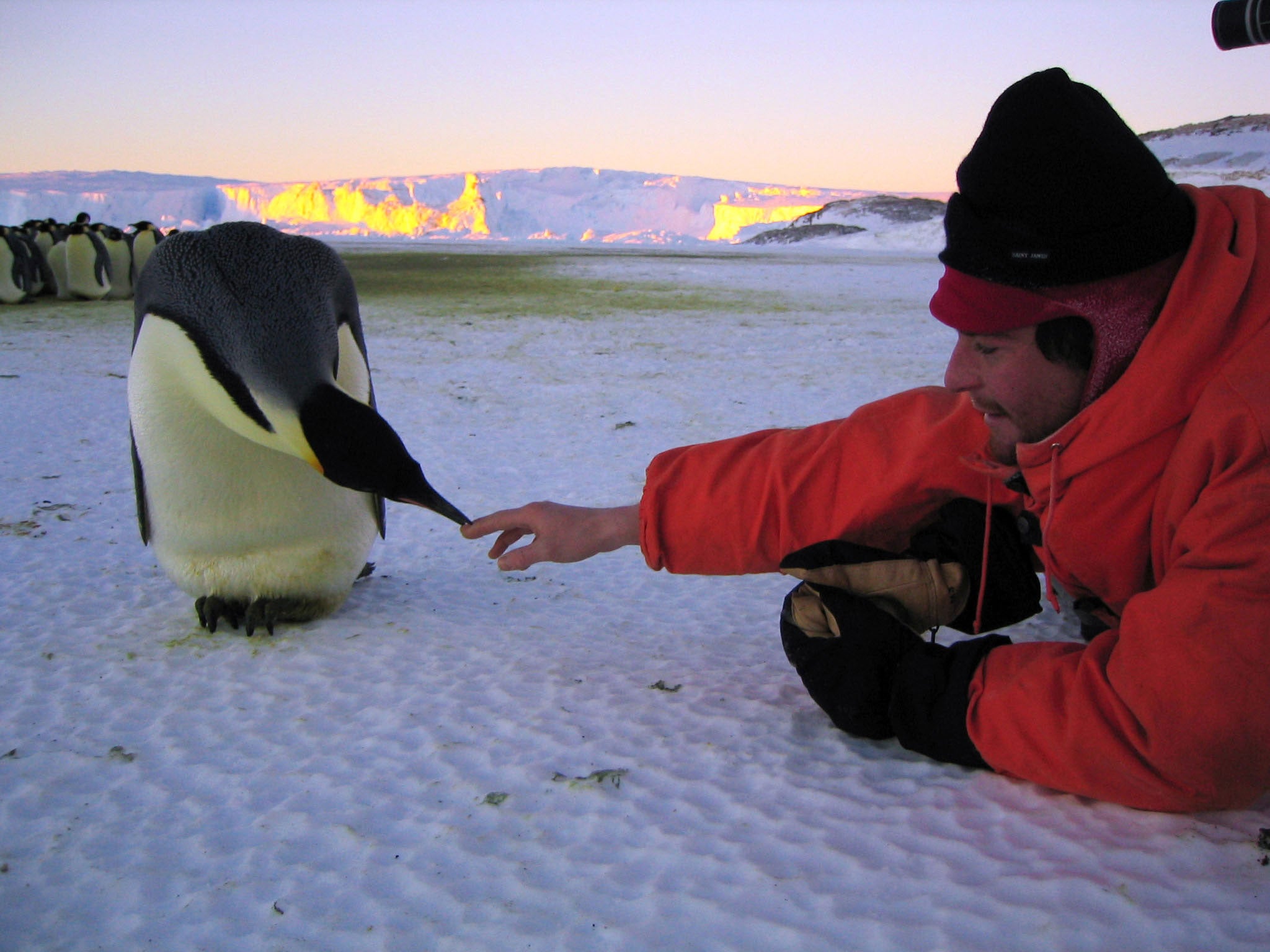March of the Penguins director to close Cannes with climate change film Ice and the Sky
The director is hoping to use his screening at the festival to draw attention to the devastating consequences of climate change

March Of The Penguins enraptured audiences worldwide and won its French director an Oscar. Now, Luc Jacquet is back with another film set in Antarctica – one that promises to have a very different impact on cinema-goers, even if it does still feature some penguins.
The director has spoken of his trip to the continent to film the documentary Ice and the Sky about Claude Lorius – the man credited with discovering global warming – and how shocked he was to see the effects of climate change at first hand.
“We didn’t have rain in [many parts] of Antarctica until two or three years ago,” said Jacquet. Now the increase in temperatures means the environment and its inhabitants are experiencing rainfall “for the first time in history”.
“In a way, this is very terrible because the animals there are absolutely not adapted to the rain. The penguin chicks are dying because they are so wet that they get cold – they are dying this way.”
There is increasing evidence of the effect that global warming is having on the Antarctic. Last week a Nasa study reported that the last remaining section of the 625-square-mile Larsen B ice shelf, which partially collapsed in 2002, is likely to have disappeared entirely by 2020.
Ice And The Sky will close the 68th Cannes Festival on 24 May, and Jacquet is hoping to use his red carpet screening at the world’s most glamorous festival both to honour Lorius – “the very first to understand something very important for us” – and to draw attention to the devastating consequences of climate change.
“For me, this is very important. I am talking about moral aspects of the question. I can’t still tell stories about nature and animals without telling people there is something very important to do to conserve this planet and this wonderful environment. I feel very obliged to do it.”
Jacquet has written of how Lorius, who first visited the region in the mid-1950s, “discovered that each air bubble clenched within the pole icefields was an air sample dating back to the time when it got caught in the ice... in other words, a few metres down, the air contained in the ice used to be breathed by the Romans. “Temperatures, air bubbles… Such discoveries resulted in drilling operations that would later help him go more than 400,000 years back in our climate history, which had never been done before.”
The French director “loves” Antarctica and relishes the challenges in shooting there. “We were able to film in -57C in ice caves,” he said. “I like this challenge. I like to be able to capture images in this region where people are not able to go.”
Jacquet’s response to those who deny climate change is one of anguished bafflement. “It is something very natural – to be able to breathe clean air and drink pure water. Why someone can refuse that I do not understand. Now, we must invent new means to live on the planet.” He added that he is “very disturbed” by “very passive positions” taken by the sceptics.
Nor is the director apologetic about showing penguins as cute creatures or embarrassed by audiences who regarded March Of The Penguins – funded by National Geographic – as a glorified Disney movie. “Making a Disney film is not bad!” As a filmmaker, Jacquet said, he “tries to share emotion”.
The Cannes Festival rarely shows documentaries in official selection. Michael Moore’s Bowling For Columbine (2002) and Jonathan Nossiter’s Mondovino (2004) are rare examples of documentaries that have been given the red carpet treatment.
However, Jacquet believes his film deserves its place in Cannes.
More than 35 million people saw March Of The Penguins. Jacquet’s hope is that Ice And The Sky (which will be released in France to tie in with the COP 21: UN climate change conference in Paris in the autumn) will have a similar reach.
Join our commenting forum
Join thought-provoking conversations, follow other Independent readers and see their replies
Comments
Bookmark popover
Removed from bookmarks